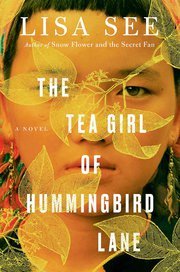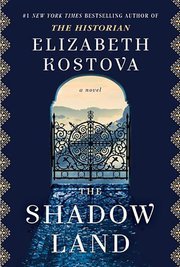Missing Persons – The New York Times
This content was originally published by CHELSEA CAIN on 26 May 2017 | 9:00 am.
Source link
I FOUND YOU
By Lisa Jewell
344 pp. Atria, $26.
Photo
Jewell’s novel explores the space between going missing and being lost. Alice Lake, a single mother of three, has a soft spot for strays and a history of bad judgment. So when she encounters a handsome stranger on the beach — a man who claims to have no memory of who he is or how he got there — she takes him home to her cottage on the British coast and calls him “Frank.” Meanwhile, in a London suburb, a young Ukrainian woman, freshly married after a whirlwind courtship and new to the country, is searching for her missing husband, an Englishman old enough to be her father. A third story line unfolds more than 20 years earlier and centers on a teenage boy, on holiday with his family, who becomes alarmed when a handsome stranger takes an interest in his sister.
Continue reading the main story
How these three plots intersect and finally collide is one of the great thrills of reading Jewell’s book. She ratchets up the tension masterfully, and her writing is lively. A cottage has “nicotine beige” walls. A view through a window consists of “a necklace of fat white lights, and beyond that the silvery shadows of the sea.” Alice is particularly winning: vulnerable and funny and self-aware. Inviting an amnesiac home for dinner with the kids can, of course, be awkward: “The four of them standing around eating pizza with a big scared man in a teenager’s hoodie. Hard to know what to say really.”
THE TEA GIRL OF HUMMINGBIRD LANE
By Lisa See
371 pp. Scribner, $27.
Photo

We meet Li-yan as a small, hungry child in a superstitious, dystopian world. She is simply called “Girl,” and when she dares to eat a bite of stolen scallion pancake, she must be cleansed by the village ruma, a scary spiritual healer in a ceremonial cloak heavily decorated with “feathers, bones and the tails of small animals.” This is 1988, and Li-yan lives in Yunnan, China. She is an Akha, an ethnic minority so isolated and remote they “didn’t hear about the One Child policy for almost 15 years.”
See’s novel reads like a folk tale or a fable. Li-yan is headstrong and good-hearted. Although she goes to school, she abides by the curses, bad omens and taboos of her local culture. But when custom requires that she kill her newborn baby, Li-yan can’t go through with it, and instead smuggles the child to an orphanage, along with a tea cake made from the tea grove that has been handed down her matriarchal line for 33 generations. Li-yan’s life takes new turns as she moves to the city and resumes her education. But her daughter has been lost to her.
Continue reading the main story
In a parallel narrative, we see the child, Haley, as she is raised in Southern California by an American couple, Dan and Constance. We glimpse her life through doctor’s notes, school assignments and emails.
Continue reading the main story
The book is steeped in tea: its medicinal and cultural value but mostly its nifty symbolic value. See is one of those special writers capable of delivering both poetry and plot: “As A-ma said, every story, every dream, every waking minute of our lives is filled with one fateful coincidence after another.”
Continue reading the main story
THE SHADOW LAND
By Elizabeth Kostova
478 pp. Ballantine, $28.
Photo

Alexandra Boyd, a young American still grieving over the death of her brother, arrives in Bulgaria to travel and teach. As is so often the case with international trips, there are some snafus. The taxi drops her off at the wrong hotel. Oh, and she ends up with a strange bag of human remains. “The sight of it went through her like a whisper of voltage — plain black canvas, long black handles, the upper side closed with a black zipper. She touched it. No, it was not one of hers.”
Inside the bag, she finds an urn of ashes and bone and a wooden plaque engraved with a name: Stoyan Lazarov. Alexandra is exceedingly polite. So she takes off on a road trip through the Bulgarian countryside, aided by a shockingly accommodating taxi driver, in an attempt to track down the bag’s owners.
It’s not a bad way to see the country.
Kostova is a clearheaded, elegant writer with a sneaky gift for incorporating the history and culture of a place into the nooks and crannies of a book that never feels bossy or expository. She also knows how to turn a phrase. “This book is a train with many cars,” she writes in a prologue, “the old kind, moving clumsily along a track at night.”
One thing is sure as the bereaved Alexandra motors through a foreign country looking to unload her burden of ash and bone: Kostova isn’t afraid of a good allegory.
Continue reading the main story
The post Missing Persons – The New York Times appeared first on Art of Conversation.



